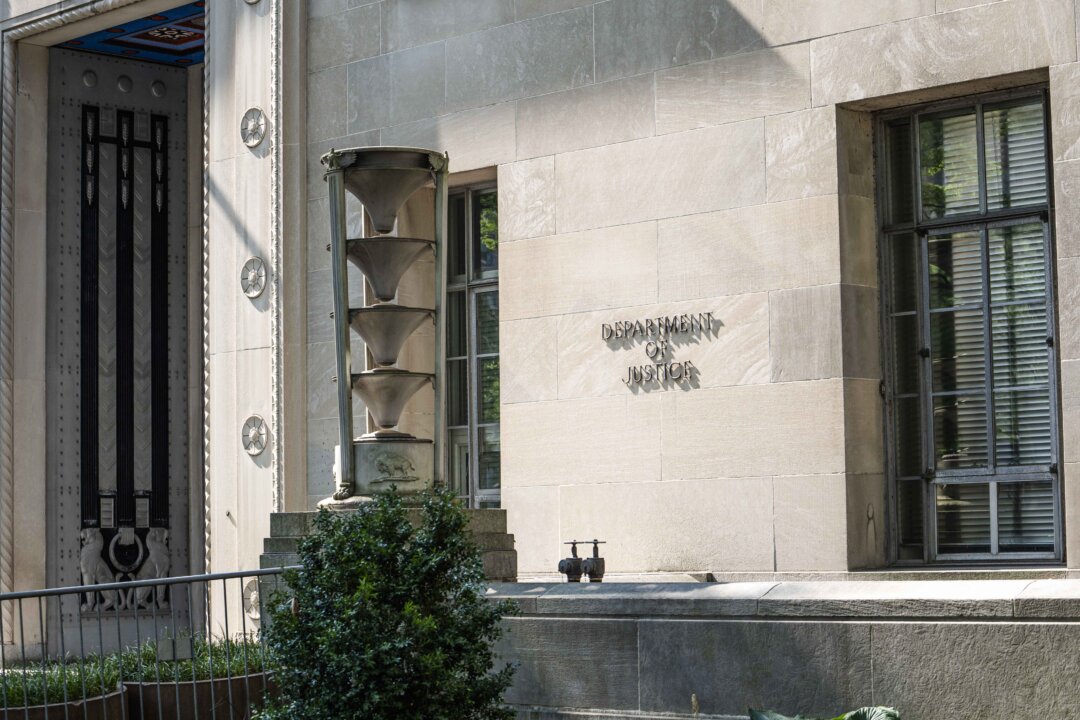China-based chemical companies play a critical role in the global fentanyl supply chain, said Attorney General Merrick B. Garland.
Eight China-based companies and eight Chinese nationals have been charged with federal crimes related to trafficking synthetic opioids and fentanyl precursors, the Department of Justice (DOJ) announced on Oct. 24.
The defendants “openly advertised their ability to thwart border officials,” used evasive tactics such as mislabeling the contents of shipments, and had shipped “a stable supply of precursor chemicals” to clients in the United States and Mexico for years, according to the DOJ’s press release, citing the unsealed indictments.
“The global fentanyl supply chain, which ends with the deaths of Americans, often starts with chemical companies based in China,” Attorney General Merrick B. Garland said in a statement, according to the press release.
Mexican cartels have been buying precursor chemicals from China and then combining the chemicals into fentanyl and distributing them to the United States.
“In order to break this critical link in the fentanyl supply chain, the Justice Department has aggressively investigated and prosecuted these companies. We will continue to target every organization and individual that fuels the deadly drug trade,” Garland added.
In May, the International Journal of Drug Policy published a report saying that law enforcement seized more than 115 million pills containing illicit fentanyl in 2023, an increase of 2,300 times the nearly 50,000 seized in 2017.
Derek Maltz, former head of special operations at the Drug Enforcement Administration (DEA), told The Epoch Times last month that China’s communist regime is using drugs as part of its “unrestricted warfare game” against the United States.
“For the third time in over a year, DEA investigations have resulted in charges against chemical companies and individuals in China who we allege are supplying chemicals to the cartels to make deadly fentanyl,” DEA Administrator Anne Milgram said in a statement.
“While they may go to great lengths to try to evade our detection, DEA will use every tool and authority we have to save American lives.”
The fentanyl crisis has devastated many American families and claimed many lives. According to the Centers for Disease Control and Prevention, the number of fentanyl deaths was 74,702 in 2023, slightly down from 76,226 in 2022.One of the companies facing charges is Wuhan Mingyue Information Technology, which is based in northern China’s Hubei Province. In January, the company was charged with attempted importation of fentanyl precursors and attempted money laundering, along with a Chinese national named Huanhuang Song, who allegedly held a Bitcoin wallet and a Western Union account for remitting payments for the company’s precursor chemicals.
The indictment included encrypted conversations between Wuhan Mingyue and an undercover DEA special agent who pretended to be a broker. The company agreed to ship one of the agent’s purchases to an address in Tampa, Florida.
In one conversation, the company touted that it had “no problems [with] Mexico customs” when it shipped drugs packaged in white bottles by air to Mexico City.
Shanghai Senria Biotechnology, based in Shanghai, was charged with attempted importation of protonitazene, a synthetic opioid, and attempted international money laundering in June. Also charged was a Chinese national named Zhenbo Han, who allegedly held a Bitcoin wallet associated with the company.
According to the indictment, Shanghai Senria “openly advertises” the sale of its synthetic opioids to the United States, Mexico, Canada, and Europe via the internet.
In November last year, Wuhan Jinshang Import & Export Trading in Hebei was charged with attempted importation of protonitazene, attempted importation of a fentanyl precursor, and attempted international money laundering. Wenying Nie, a Chinese national who allegedly held a bitcoin wallet associated with the company, was also charged.
When a DEA undercover agent asked Wuhan Jinshang about payment options, the company said: “Use Bitcoin. It’s quick and easy,” according to the indictment.
When asked whether shipping to the United States or Mexico would be more secure, Wuhan Jinshang replied, “We guarantee 100% safe delivery … shipped in the name of electronic products or cosmetics.”
In January, Guangzhou Tengyue Chemical, based in southern China’s Guangdong Province, was charged with attempted importation of protonitazene, along with Chinese national Xiaojun Huang, who allegedly held a bitcoin wallet on behalf of the company.
According to the indictment, Guangzhou Tengyue told a DEA undercover agent that the company sent “more than 20 kilograms” of its drugs to the United States, Africa, Canada, and other countries every month.
The other companies and associated individuals charged with related crimes are Hubei Shanglin Trading and Zhihan Wang; Jiangsu Jiyi Chemical and Ji Zhaohui; Tianjin Furuntongda Tech and Wenxing Gao; and Henan Oumeng Trade and Yinxia Zhao.
Five of the eight companies charged have ceased operations, including Wuhan Jinshang and Wuhan Mingyue, according to the DOJ.

